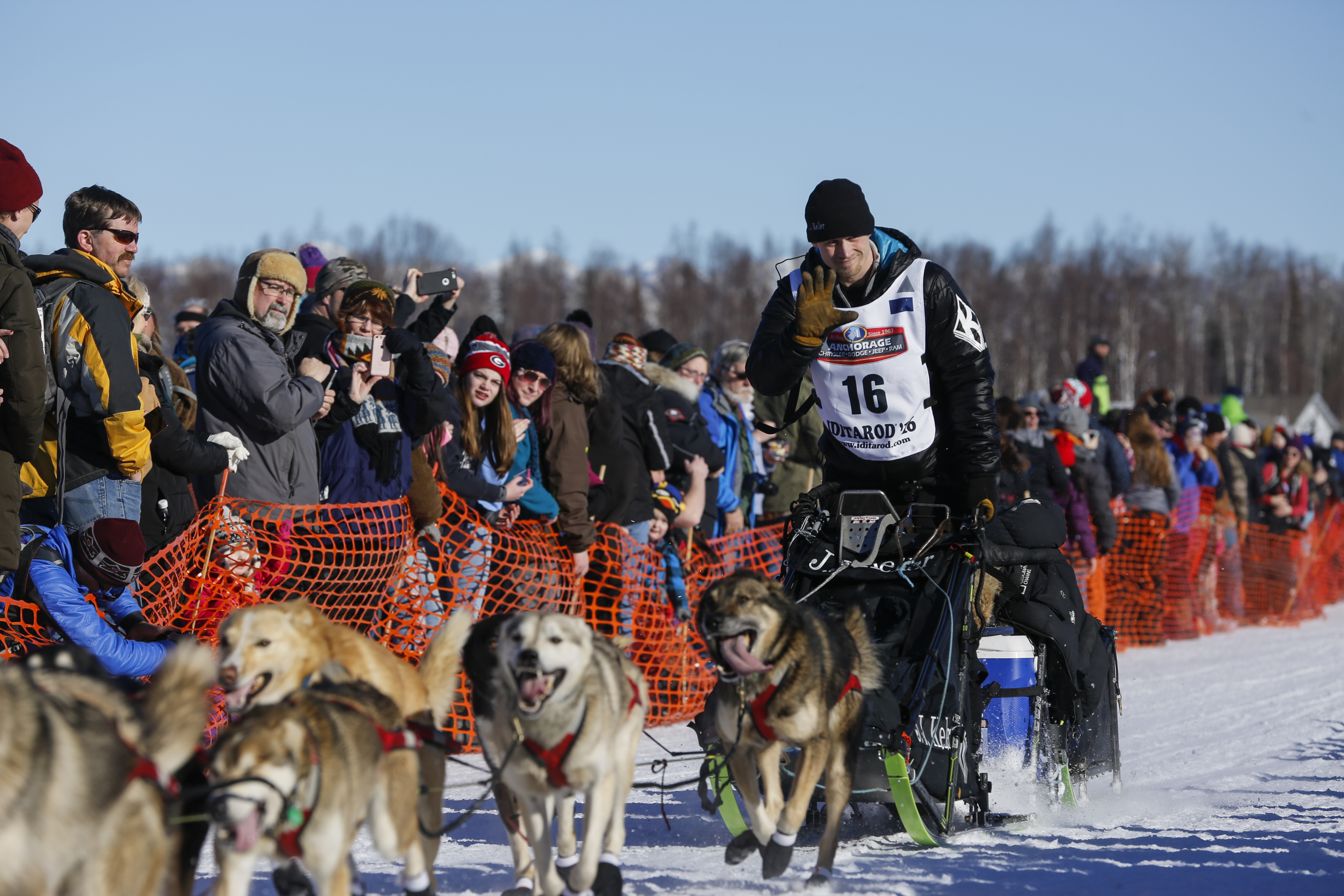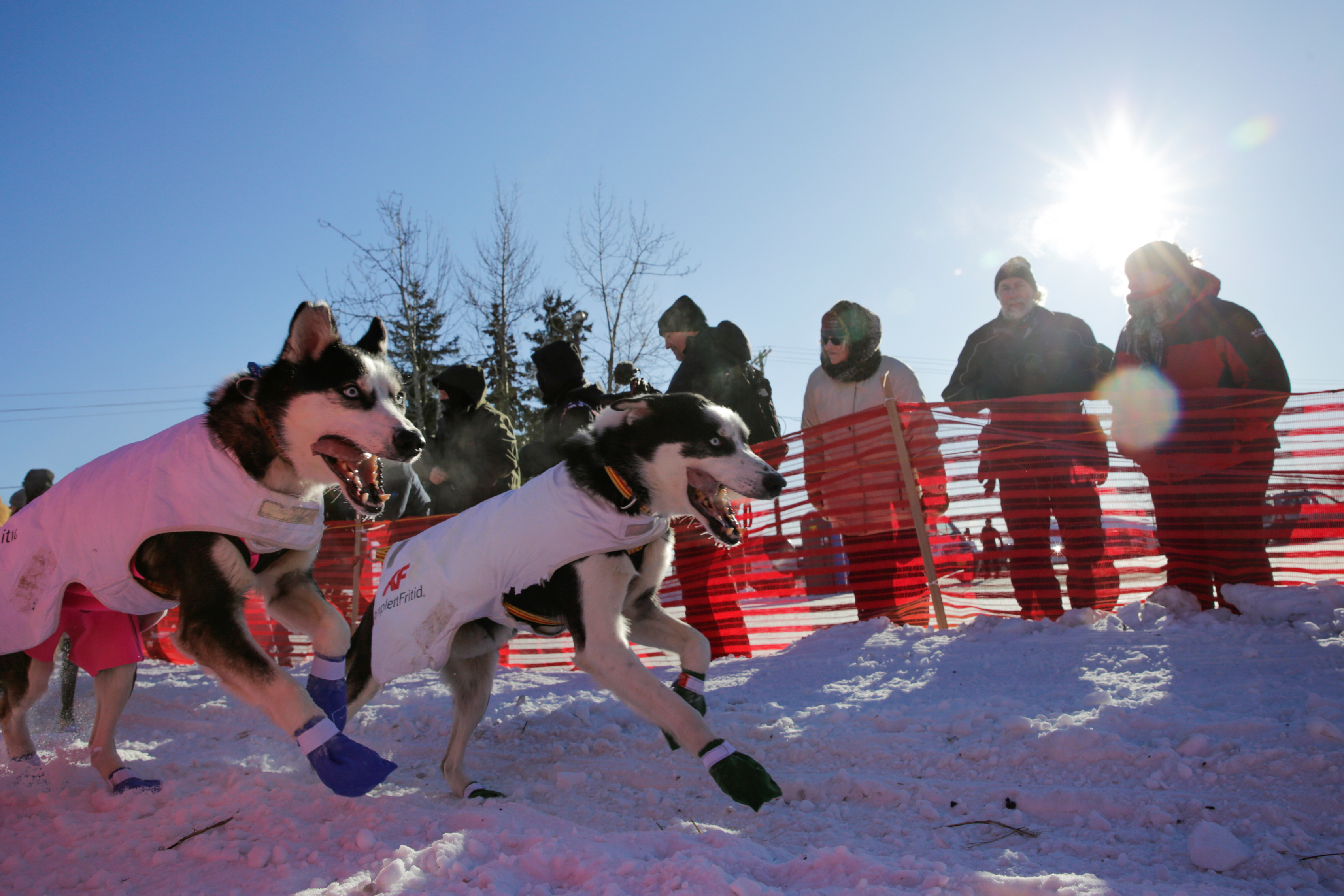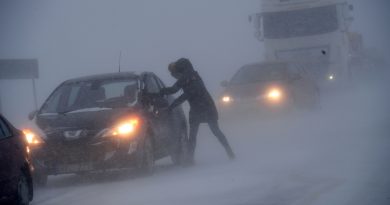Four-time Iditarod champion didn’t drug his dogs, according to a new report

An attorney for four-time Iditarod champion Dallas Seavey released a toxicology report Wednesday that he says proves the musher did not drug his dogs in last year’s race.
Seavey has claimed innocence since the Iditarod announced in October that dogs on his team tested positive for the banned painkiller Tramadol. And according to the new toxicologist’s review, Seavey’s dogs did not receive Tramadol until hours after reaching the finish line in Nome.
Clint Campion, a former District Attorney, said that proves Seavey did not give the drug to the dogs and that someone else did.
No speculation by Seavey
Campion revealed the new information at a press conference organized by a Bay Area public relations firm. Seavey has hired both Campion and the firm to represent him.
“He doesn’t want to speculate about why someone would do that or who might’ve done that,” Campion said.
Still, some have speculated that a rival musher or someone opposed to dog mushing tried to sabotage Seavey.
Seavey finished second in the race and was away from the dog yard when he says the doping occurred. The Iditarod did not penalize him for the positive tests. The race’s board said they made that decision because of an ambiguous rule that has since been rewritten.
But Seavey withdrew from this year’s race in protest after the Iditarod named his dogs as those that’d failed the tests.

A mistake?
On Wednesday, Campion said the Iditarod should admit it made a mistake.
“We’d like them to say that we mistakenly released Dallas’ name, that the evidence shows that it’s completely unclear or it’s impossible to believe that Dallas would’ve this and that we want to remove any suspicion about Dallas’ involvement in drug doping,” Campion said.
“A dosing after the trail”
Seavey’s evidence comes in the form of the 20-page report, written by Patricia Williams, an expert toxicologist who lives in Louisiana. Williams described herself as a huge fan of the Iditarod.
Williams said she offered to conduct the review for free after hearing what’d happened.
“I was shocked, and I said, ‘Whoa.’ I said, ‘Look, let me get all the lab work and let me see what I can see,’” Williams said.
Williams said she saw a lack of understanding on the part of the Iditarod’s toxicologist in how quickly dogs metabolize Tramadol, as well as evidence the testing instruments were not calibrated correctly. Williams also said the high levels of Tramadol found in the tests indicate the drug was given well after Seavey arrived in Nome.
“This is definitely a dosing after the trail,” Williams said. “Every musher should be worried about this. Every sponsor should want to tighten security and make sure this never happens again.”
A push for new anti-doping regulations
Campion, Seavey’s attorney, agrees that security needs to be improved and said the Iditarod should adopt anti-doping regulations more in line with the International Federation of Sleddog Sports. He said that would bar the release of a musher’s name if a confidential investigation finds doping rules have not been broken.

Asked if Seavey is considering legal action in regards to the release of his name, Campion said the musher is not ruling anything out.
“I mean, his goal is to move forward from this, but he hasn’t taken anything off the table,” Campion said. “As to the next steps, we’re not ready to talk about that yet.”
In a written statement, the Iditarod Board of Directors said it’s not ready to talk about the report, saying the board is still reviewing the new information.
But the board’s news release Wednesday repeated earlier statements that the board never blamed Seavey directly for the positive drug tests.
The 2018 Iditarod starts March 3.
Related stories from around the North:
Canada: Mushers reach halfway point of Yukon Quest sled dog race, Radio Canada International
Greenland: Siberian huskies, Greenland sled dogs share DNA with today’s canine companions, Radio Sweden
Finland: Nordic World Ski Championships in Finland promise medals and magic, Yle News
Norway: Finnmarksløpet 2015 dog sledge race underway in Europe, Barents Observer
United States: Confidential report paints bleak picture for Iditarod, Alaska Public Media



